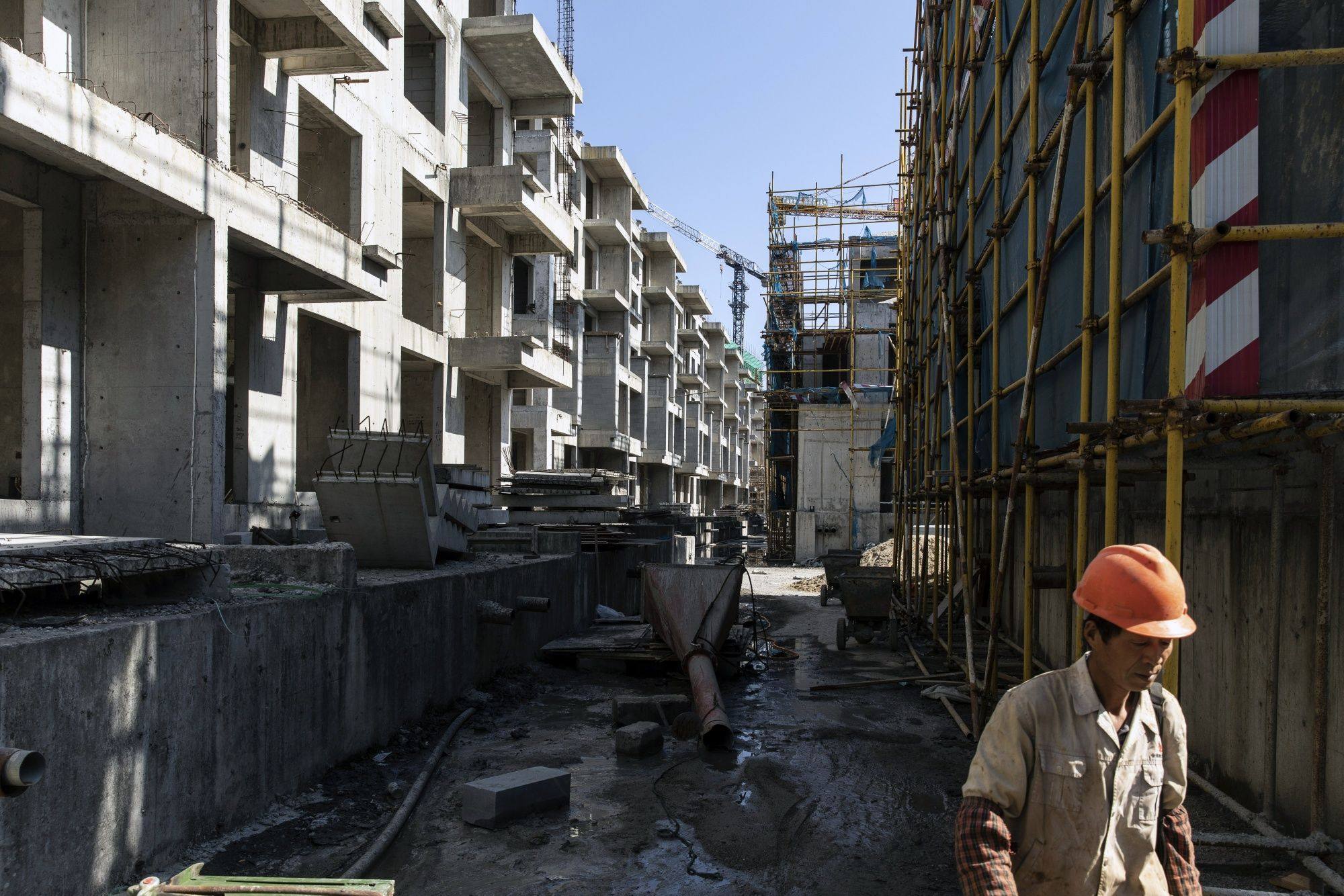
China property sales fall in February, expectations grow purchase restrictions could be eased
- China’s top 100 developers’ total contracted sales in February declined by more than 60 per cent year on year, research firm CRIC said in a report
- Analysts expect property sales to continue the weakening year-on-year trend this month, due to the high base effect of March 2023
Property sales in mainland China declined for the tenth straight month in February, as lower demand during the Spring Festival holidays weighed and expectations are the beleaguered sector’s woes will continue, pressured by low homebuyer confidence.
China’s top 100 developers posted total contracted sales of 185.7 billion yuan (US$25.8 billion) in February, a decline of more than 60 per cent year on year, and a fall of close to 21 per cent month on month, according a report published on February 29 by the China Real Estate Information Corp (CRIC), a research firm.
“While local governments have been sending out favourable signals [to property developers] and easing restrictions for homebuyers, there is still an imbalance between supply and demand at this point, and it takes time for the market to regain confidence,” according to analysts at CRIC.
Nomura’s property analysts said they expect property sales to continue to weaken year-on-year in March, due to the high base effect of March 2023, when sales received a boost from the Chinese economy’s reopening.

“It still remains uncertain whether the depressed homebuyer confidence that prevails now can be altered, even with some local governments’ recent notable policy support,” said Nomura analysts Jizhou Dong and Riley Jin in a note.
“We expect new home sales to be sharply lower year on year for at least the next several months. This is because a temporary, modest boost in home sales from the latest rounds of local government policy relaxation released in August and September – including removal of home purchase and mortgage restrictions – has diminished,” wrote analysts at Fitch Ratings.
State-owned Poly Developments saw its sales drop 54.1 per cent year on year in February, while Shenzhen government-backed China Vanke recorded a 52.1 per cent decline.
China’s home prices fall at a slower pace as Beijing moves to resuscitate sector
Meanwhile, top private developers like Country Garden saw a 78 per cent year-on-year decline in sales in February, while Longfor Group saw its sales fall by 55 per cent.
The collapsing sales are not just a reflection of weak homebuyer confidence but also the result of efforts to reorient the economy away from the previous over-dependence on property for driving growth.
“We continue to believe that a turnaround of the property sector ultimately hinges on whether home sales can stabilise,” said Nomura. “While there may be some expectation by the capital market that more tier-1 cities, namely Beijing and Shanghai, could relax their local home-purchase restrictions, we choose not to put too much weight on such expectations for policies.”
This seems to be the widespread belief among China watchers, as Moody’s Analytics analysts say “things will get worse before they get better”.
“Still, we do not expect the ‘three red lines’ policy – an intervention made in August 2020 that placed restrictions on property developers – to be entirely dropped,” said Sarah Tan and Harry Murphy Cruise, economists at Moody’s Analytics.
“Support through the supply side could take the form of expediting construction of unfinished properties via more funding for the property sector. Meanwhile, efforts to boost demand could bring another (round of) easing of restrictions for first-time homebuyers and a reduction of the down payment ratio.”
Meanwhile sentiment among homebuyers remains uncertain amid mounting evidence of increased consumer caution.
“Despite developers’ marketing efforts, demand is still weak and buyers remain on the sidelines, and this is due largely to uncertainties in income expectations and volatility in the market,” said Liu Shui, a director of corporate research at China Index Academy, a real estate research firm.
“We expect to see more favourable support measures being rolled out after the ‘two sessions,’ with tier-one cities seeing more demand-side easing measures, while tier-two cities will see complete relaxation of purchase restrictions.”

